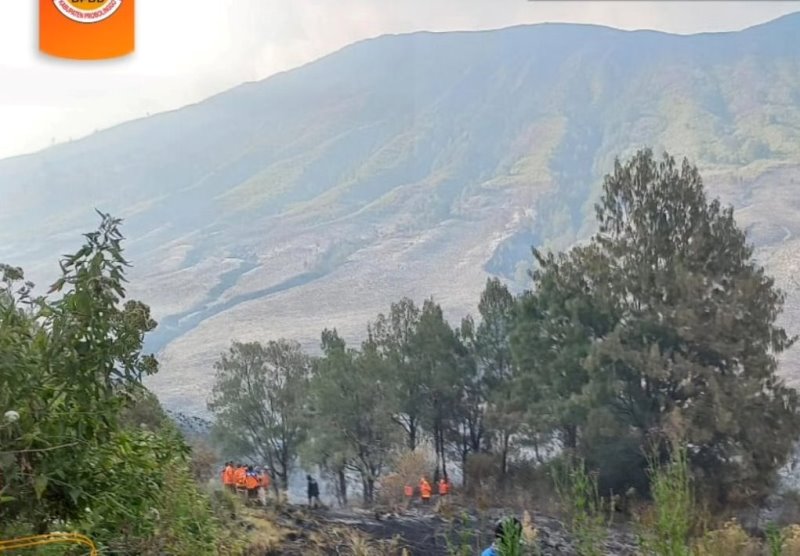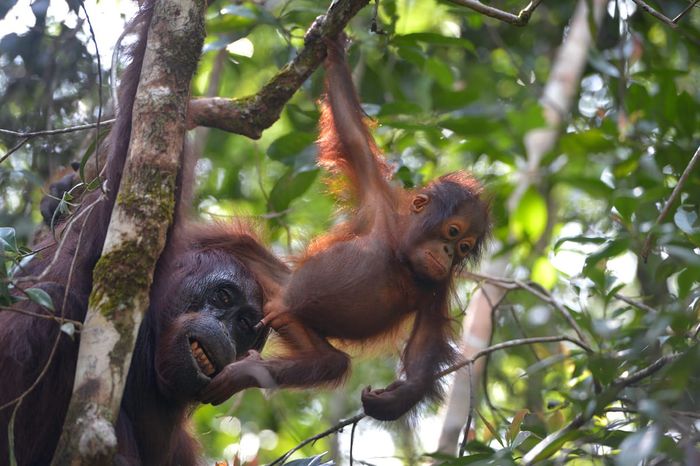Belantara Foundation Promotes the Forest Restoration Project Program: SDGs Together at the EcoPro 2022 Exhibition, Japan
Belantara Foundation participated in the EcoPro 2022 Exhibition at Tokyo Big Sight (Tokyo International Conference Center), East 6 Hall 6-033, Japan from 7 to 9 December 2022. The theme for the 24th EcoPro Exhibition this year was “Tackle Environmental Challenges and Achieve the Sustainable Development Goals (SDGs) for a Sustainable Society”. The EcoPro exhibition is the second-largest exhibition event in Japan. On this occasion, Belantara Foundation with Asia Pulp & Paper Japan Ltd. (APPJ) present to promote their collaboration program "Forest Restoration Project: SDGs Together" to the international community.
Belantara Foundation, supported by APPJ, initiated a restoration program called “Forest Restoration Project: SDGs Together” in the Giam Siak Kecil-Bukit Batu Biosphere Reserve, Riau. This restoration program is carried out by planting endangered native tree species in Sumatran forests which have been degraded due to illegal human activities and forest fires. Tree species planted include ramin (Gonystylus bancanus), lopostemon (Lophostemon sp.), and geronggang (Cratoxylon arborescent). APPJ's funding support comes from a donation scheme that comes from a portion of product sales made by the Indonesian paper producer, APP (including several APP China factory products), and APPJ's business partners. This program was started in August 2020.
In 2022, Belantara Foundation is working together with APPJ, Minas Tahura Production Forest Management Unit (KPHP), Forest Farmers Group (KTH) Tahura Sultan Syarif Hasyim, and local stakeholders to implement the restoration activities. This restoration through agroforestry activities was intended to be planting multi-purpose tree species and endangered native trees in the Tahura Sultan Syarif Hasyim, Giam Siak Kecil-Bukit Batu, Riau Province.
The types of multi-use plants planted include areca nut, dogfruit, jackfruit, gempol, ketapang, matoa, petai, mahogany, aloes, and other types. Through this method, hopefully the community will receive socio-economic benefits while improving the quality of peatlands. In addition, endangered native tree species planted are balangeran and geronggang. In the last two years, approximately 47 hectares have been planted, installed project nameplates, built nursery houses, provided capacity building for the community as well as conducted monitoring and evaluation.
Belantara Foundation Executive Director, Dr. Dolly Priatna said that ecosystem restoration is one of the most important global issues at the moment. The UN General Assembly has declared the UN Decade on Ecosystem Restoration to synergize massive ecosystem restoration efforts for damaged and disturbed ecosystems in the 2021-2030 period.
Ecosystem restoration is considered one of the effective steps to mitigate climate change and increase food security, maintain water supply and protect biodiversity. Ecosystem restoration in general will affect and improve environmental quality, including air quality, water quality, trees, soil, and wildlife habitats and populations. Restoration can also restore the function of regulating the water system and microclimate of an ecosystem. Successful ecosystem restoration will be able to prevent or reduce various risks of environmental damage such as erosion, landslides, contamination of water sources, lowering of the groundwater level, land fires, air pollution, and others.
"In addition, ecosystem restoration also needs to pay attention to the socio-economic dimensions of the community. Ecosystem restoration will not only restore ecological functions but also restores the function of forests as a source of sustainable livelihoods for communities. With proper governance, ecosystem restoration can support the restoration of forest functions as a provider of environmental, social, and economic benefits for the community," said Dolly, who is also a lecturer at the Graduate School of Pakuan University.
APPJ Representative Director, Tan Ui Sian said that the Forest Restoration Project: SDGs Together is a form of support and a concrete step by APPJ to contribute to ecosystem restoration in the Giam Siak Kecil-Bukit Batu Biosphere Reserve area, Riau, which will be implements in a sustainable manner until 2023.
“Forest Restoration Project: SDGs Together also supports the 12th Sustainable Development Goals (SDGs) target, namely responsible consumption and production to ensure sustainable production and consumption patterns to achieve economic growth and development; the 13th SDGs target is to take fast action to address climate change and its impacts; the 15th target, namely protecting, restoring, and supporting the sustainable use of ecosystems; and the 17th SDGs target, which is to strengthen the means of implementation and revitalize the global partnership for sustainable development," added Tan.
The Head of KPHP Minas Tahura, Matnuril said that his party welcomed and fully supported the ecosystem restoration efforts carried out with the Belantara Foundation and KTH Tahura Sultan Syarif Hasyim which was supported by APPJ and other stakeholders.
"This effort is expected to be able to make a significant contribution to increasing the area of ??restored forest area in Riau Province," said Matnuril.
The Government of Indonesia through the Regulation of the Minister of Forestry No. SK.159/Menhut-II/2004 concerning Restoration in Production Forest Areas (IUPHHK Ecosystem Restoration) supports private sector participation in restoring degraded ecosystems.
The Forestry Attache of the Indonesian Embassy in Tokyo Japan, Dr. Zahrul Muttaqin said that the cooperative efforts between the private sector in Indonesia and Japan to support the program to restore degraded forests in Indonesia, especially in Sumatra, should be appreciated and increased. In this case, the Indonesian Embassy in Tokyo, Japan through the Forestry Attache is ready to bridge this cooperation.
"We hope that support for the restoration of degraded forests in Sumatra will not only come from cooperation between the private sector but can also encourage cooperation between communities in Japan and Indonesia, especially in terms of involving the younger generation in Indonesia and Japan. Apart from that, APPJ's real step by involving high school students in Japan should be appreciated and further supported," said Zahrul.













